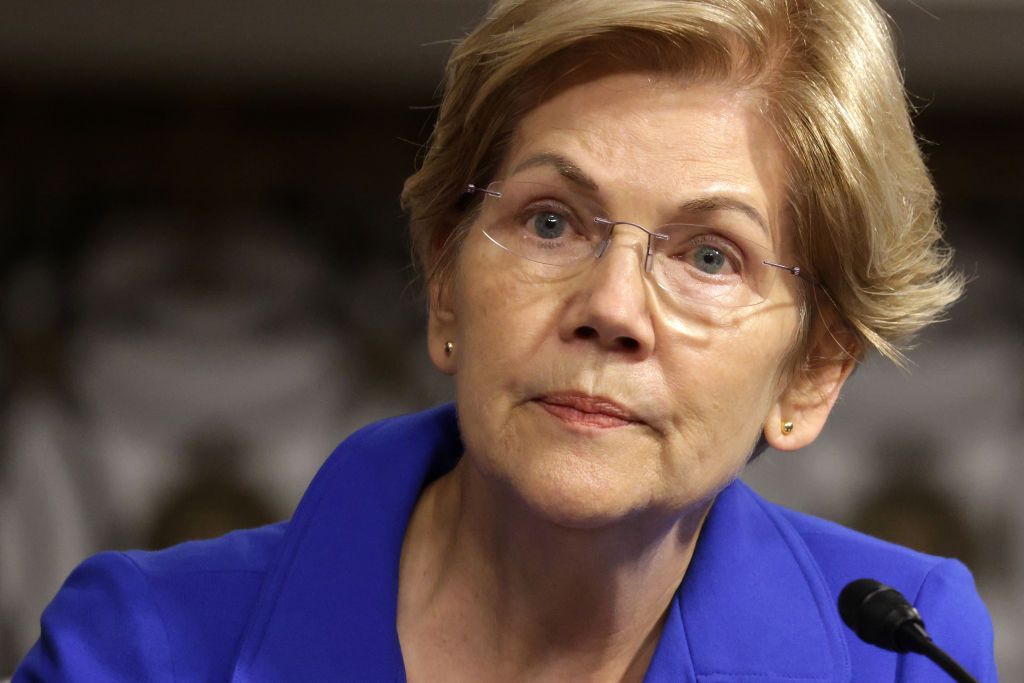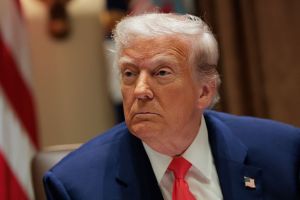Observers had mixed reactions to yesterday’s announcement that inflation rose 7 percent last year. It all depended on where they fell on the ideological spectrum.
President Joe Biden attempted to spin the report, saying that gas and fuel price growth was starting to slow, while acknowledging that more work needed to be done. He’d previously blamed rising inflation on used car prices and supply chain issues, swearing that increased government spending had nothing to do with it. The White House also compared America’s Consumer Price Index report to indices in other countries, calling inflation a global phenomenon.
Other Democrats blamed big business for the inflation jump. “Long-term we want to get those prices more under control, we need competitive markets,” Senator Elizabeth Warren told MSNBC’s Chris Hayes. “And that means enforcing our antitrust laws, enforcing the laws that promote competition in this country that help small businesses compete. That’s going to help us not just in the short run but that’s going to help us in the long run too.”
It’s not the first time Warren has made this suggestion. She previously claimed that grocery store giants like Kroger were driving up prices. Data from New York University shows otherwise, with grocery stores reporting a slim net profit margin of 1.11 percent.
“I doubt she’ll publicly thank [grocery stores] for lowering prices at the onset of the COVID-19 pandemic,” the Cato Institute’s Norbert Michel scoffed in an email. “I would not be surprised if many members of Congress try to use trust-busting (and price controls) to at least draw attention to how much they’re ‘fighting for the little guy.’”
Antitrust as a “solution” to inflation has become a common trope in Congress. Both Vermont Senator Bernie Sanders and California Congresswoman Barbara Lee tweeted disapprovingly of business profits in response to the inflation numbers. The Senate Judiciary Committee is currently considering a bill that would keep companies like Amazon from suggesting customers buy in-house brand items over other wares.
“People don’t like big corporations and you might as well shift the blame,” American Action Forum president and former CBO director Dr. Douglas Holtz-Eakin told me in an email. “The real blame is on the administration, the Congress. The American Rescue Plan which was $1.9T in stimulus in an economy that was growing at a 6.5% rate. It’s the wrong time to be doing stimulus. It’s way too big. It produced a lot of inflation and they’d rather not discuss that.”
Price controls have also come back into vogue. University of Massachusetts Amherst assistant professor of economics Isabella Weber lobbied for a strategic kind of price control last month in The Guardian, suggesting they “would buy time to deal with bottlenecks that will continue as long as the pandemic prevails.” Eric Levitz at New York Magazine called the argument “woefully incomplete.” He suggested a variety of government moves, including antitrust action and more government spending along with price controls.
“I was on the staff of the Council on Wage & Price Stability in 1976-77, the Washington agency charged with controlling price increases,” said Mercatus Institute distinguished adjunct fellow Dr. Bruce Yandle via email.
Yandle pointed out that price controls had led to higher costs and higher prices. “During the time of price controls, the Girl Scouts faced a crisis,” he wrote. “The cost of ingredients for their cookies shot up and they needed to raise the price of their cookies. This required a meeting of the Council on Wage & Price Stability, which included the Secretary of Treasury, Secretary of Labor, and other high ranking officials. They reviewed, studied data, and listened to petitions and finally granted a price increase. I think you get an idea of how difficult it is to control prices and wages in an economy as large and complex as that of the United States.”
It seems the White House plans to lean on the Federal Reserve to solve inflation in the long term. Fed Chair Jerome Powell told a Senate committee on Tuesday that the central bank would raise interest rates if the inflation rate kept rising. He also backed tapering off bond purchases and possibly selling assets to lower the money supply. Biden’s Fed vice chair nominee Dr. Lael Brainard also appeared to support this move during her testimony before a Senate committee.
The solution appears to be twofold. The Fed will need to cut back, if not eliminate, its bond-buying practices so the monetary supply lowers. And intrusions by Congress and the White House into the marketplace will have to be curbed. If they aren’t, our economic woes will only continue.

























